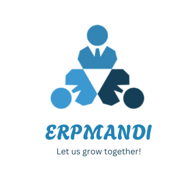Future of ERP in 2025
Top Trends, Technologies, and How to Stay Ahead
PREPARING FOR ERP
Jitesh Dua
5/12/20252 min read


The ERP (Enterprise Resource Planning) landscape is undergoing a radical transformation. No longer just a backend system for managing finance or inventory, ERP in 2025 is intelligent, cloud-native, hyperconnected, and proactive. From Agentic AI to low-code platforms, ERP systems are now empowering businesses with agility, real-time decision-making, and personalization at scale.
Whether you're a mid-market company, a fast-scaling startup, or an enterprise modernizing legacy systems—understanding where ERP is headed can be your biggest competitive edge.
Agentic AI – The New Brain of ERP ERP systems are now leveraging Agentic AI to think ahead. These systems anticipate problems, suggest solutions, and automate decisions. Agentic AI refers to artificial intelligence that acts autonomously to accomplish goals based on high-level instructions, with the capacity to make context-aware decisions. In ERP, this means the AI is not just reactive, but proactive—identifying patterns, initiating workflows, and even interacting with users to gather missing information or offer optimized alternatives.
Examples include predictive maintenance for manufacturers, AI-driven demand forecasting, smart cash flow alerts, and proactive purchase suggestions. SAP Joule, Oracle Adaptive Intelligence, and Dynamics 365 Copilot are key platforms integrating these capabilities. These tools are evolving from passive assistants to active agents that drive operational efficiency and strategic foresight.
Cloud ERP Becomes the Norm (With Hybrid Rising) Cloud-first strategies dominate ERP adoption in 2025, driven by benefits such as faster deployment, lower infrastructure costs, and built-in analytics. Hybrid models are also popular, allowing sensitive data control with the flexibility of cloud.
Two-Tier ERP Large organizations are adopting a two-tier model with Tier 1 systems (e.g., SAP, Oracle) at headquarters and Tier 2 solutions (e.g., NetSuite, Zoho) at subsidiaries. This strategy ensures cost control and agility across global operations. The two-tier ERP model offers several advantages:
Faster implementation at the subsidiary level due to simpler, more flexible systems
Lower total cost of ownership compared to extending Tier 1 systems to all units
Improved compliance with local regulations and tax norms through localized Tier 2 systems
Seamless integration with central Tier 1 ERP, enabling consolidated reporting and visibility
This model is particularly suitable for multinational companies, large conglomerates with diversified business units, and organizations expanding into new geographies with differing operational needs. It allows central governance while enabling autonomy and speed at the edge.
Low-Code, No-Code Customizations Low-code and no-code ERP tools enable business users to customize dashboards, workflows, and reports without IT dependency. Platforms like Microsoft Power Platform, Oracle Visual Builder, and Zoho Creator are leading this trend.
Industry-Specific ERP Solutions Vendors are focusing on industry-specific ERP systems to meet unique regulatory and operational needs. Key sectors include construction, textiles, healthcare, and retail. These tailored solutions improve relevance and adoption.
Real-Time Insights and Enhanced UX Modern ERP interfaces now prioritize user experience with mobile-first design, voice-enabled reports, and personalized dashboards. SAP Fiori, Oracle Redwood UX, and Infor OS are setting new benchmarks in usability.
Challenges in the Indian SME Market
Despite advancements, up to 90% of ERP implementations in Indian SMEs fail due to poor planning, inadequate process mapping, and incorrect system selection. Pre-implementation consulting and vendor-neutral advisory are essential for success.
Final Takeaway
ERP in 2025 is not just about software; it's a strategic tool for growth. Key recommendations include:
Adopt cloud-based or hybrid ERP solutions
Integrate AI for smarter automation
Choose industry-specific platforms
Empower users with low-code tools
Seek expert guidance before implementation
ERPMandi™ offers services for ERP selection, vendor comparison, RFP drafting, and connecting with qualified consultants. Visit erpmandi.com to access a free ERP readiness checklist or schedule a consultation.
#ERPTrends2025 #CloudERP #AIinERP #ERPmandi #FutureOfERP #TwoTierERP #LowCodeERP #SmartERP #ERPSuccess #ERPConsulting #IndiaERP #ERPselection #ERPimplementation
